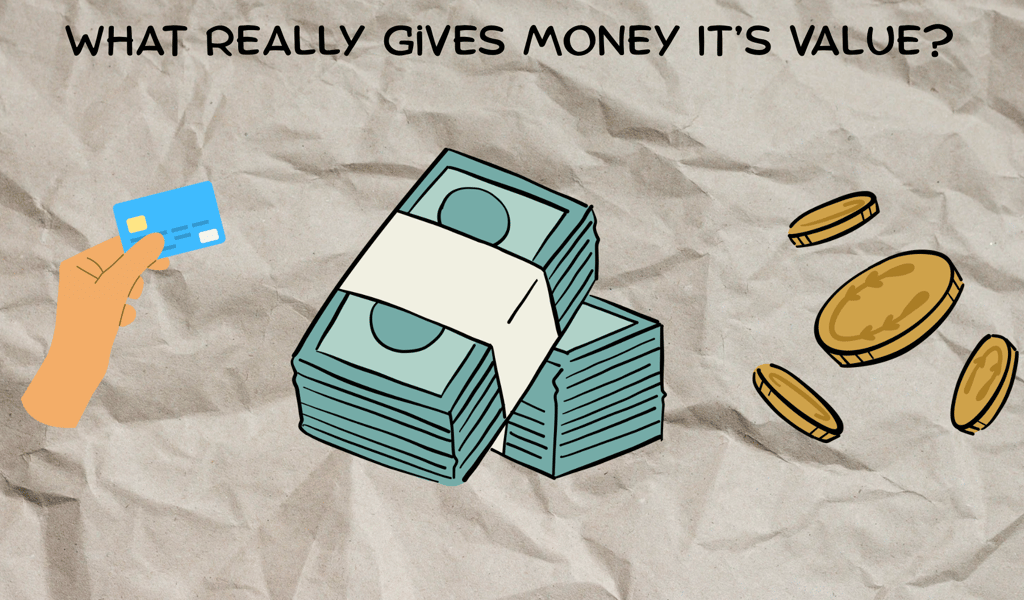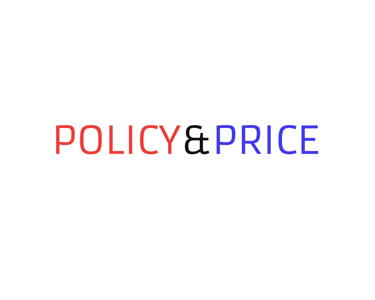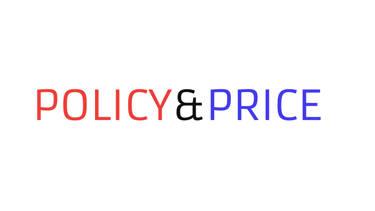Are banknotes just pieces of paper, and is digital money just numbers on a screen? A deep insight into the four functions of money.
Exploring what really gives money its value.
Oliver Bennett
5/22/20255 min read


Here's an interesting thought for you - whether right or wrong, currencies are just paper, metal, or digits, until everyone agrees to treat them as valuable. This means that economies only function because, socially, we have accepted them.
Before around 600 BCE, the form of direct exchange was barter. Bartering was the direct exchange of goods and services, but it was inefficient as it required what economists call a "double coincidence of wants". The "double coincidence of wants" is a major problem in systems of barter, as it's difficult to find two parties who both desire the goods or services the other is offering. For example, if a fisherman wants bread and a baker wants fish, they can trade, but if the baker doesn’t want fish, the trade won't happen. This is why money became essential, it acts as a common medium that everyone accepts, thus, removing such coincidences that occur in barter systems.
So, with that in mind, let's get into it. Money. What is it? Money is anything that is widely accepted as a means of payment for goods and services. This could be cash, digital currencies, credit cards, debit cards, cryptocurrencies or checks. You could argue that money is the cornerstone of all modern functioning economies, it is not just a symbol of wealth, but a tool that allows economic activity to take place smoothly and efficiently, every single day. In fact there is around £90 billion circulating round the UK in banknotes and coins alone. Economists generally agree that money performs four primary functions: money acts as a medium of exchange, a unit of account, a store of value, and a standard of deferred payment.
Medium of Exchange
A medium of exchange is a function of money which exemplifies money as an intermediary between buyers and sellers as payment for goods and services. Arguably the most fundamental role of money is to act as a medium of exchange. As previously mentioned, money's ability to act as a medium of exchange solves the problem of a "double coincidence of wants" by being a universally accepted item in exchange for goods and services. Whether it is coins, notes, or digital currency, money enables buyers and sellers to complete transactions efficiently, and simply.
Unit of Account
Unit of account means that money provides a standard way to measure and compare the value of goods and services. Think about it - without money, assigning value to items would be difficult and ultimately, subjective. Prices help all economic agents make informed decisions by tracking costs and managing budgets, as people can agree on the value of goods and services they are exchanging. For example, instead of saying a chicken is worth "half a goat," we can say it costs £5—making communication between economic agents clearer and more practical.
Store of Value
An underrated function of money is "store of value", this refers to the ability to retain value over time, allowing people to save now and spend later. Furthermore, you could argue that money's ability to retain its value acts as protection for many households in the UK, in the form of savings - in case of recession which may happen due to external shocks. On the other hand, if, for example, money loses value quickly due to inflation, its ability to act as a store of value weakens. This key function therefore encourages saving which is vital for investment and economic stability for households and the UK economy as a whole.
Standard of Deferred Payment
Standard of deferred payment means goods purchased now, can be paid for at a later date. This is extremely important for credit, loans, mortgages, and contracts. If two economic agents agree on a price today to be paid later, they can rely on money to maintain a consistent value and a strong legal backing. Without a reliable standard of deferred payment, borrowing and lending money would be extremely risky, as neither party could be confident that the value of the repayment would be equivalent to the value initially agreed upon.
So How do These Functions Drive Economic Growth?
Now we know the 4 major functions of money, we can take a look at how they drive economic growth, and how money is more than just copper, steel, plastic and numbers on a screen.
The medium of exchange allows more transactions to happen, as money acts as an intermediary between buyers and sellers which boosts overall economic activity as well as economic output. This is because more transactions means a greater amount of consumption in the UK, and therefore businesses should thrive.
As previously mentioned, the unit of account means money provides a common measure for pricing goods and services, which helps businesses compare costs and set prices. This is essential for efficient markets and making decisions around splitting projected retained profits (money) that go back into investment - between R&D, human capital, and technology in an aim to increase overall productivity and efficiency. This therefore further increases economic output as a whole in the UK as businesses become more efficient and innovate.
For the store of value, money retains its value over time, people are more likely to save and invest, creating a pool of funds that can be used by businesses for investment and expansion, as well as households to invest and save, protecting UK households from recessions or external shocks, creating a higher level of economic stability, even through the tougher times of the economic cycle.
The standard of deferred payment allows goods provided now to be paid for at a later date. This supports credit systems, as individuals and businesses can borrow money now and repay later, which allows people to spend or invest even if they don't have the immediate funds necessary. For example, everyday financial products such as credit cards, loans, and mortgages all rely on this principle. Furthermore, large-scale projects such as infrastructure projects for the government, housing developers who look for large scale housing developments, and business expansions into new markets or abroad, often require upfront capital. Governments and businesses can issue bonds or take loans to fund projects now (especially governments that are looking to make a big difference in the short term), and repay them gradually over time. Without the ability to pay over time, many of these investments wouldn't be possible. Not only do these investments drive economic growth through increased economic inputs and money flowing around the economy but they often also drive living standards upwards. For example, government investment in infrastructure often increases households ability to move freely, and housing developments enable more families to access better living conditions and improve their overall standard of living.
A Final Conclusion
With zero economic context or background, money may appear to be just paper, metal, or numbers on a screen, however, its functions (medium of exchange, unit of account, store of value, and a standard of deferred payment) reveal its deeper economic and social importance (through increased living standards). From what we've discussed an explained, we can see that money is not valuable because of what it is—it's valuable because of what it does. Its ability to perform these four functions reliably is what allows modern economies to operate, proving that money is far more than just a physical or digital form—it is a cornerstone of trust and economic activity.
Economic Analysis. Political Analysis. Insightful Analysis.
Explore political and economic affairs with us.
© 2025. All rights reserved.


